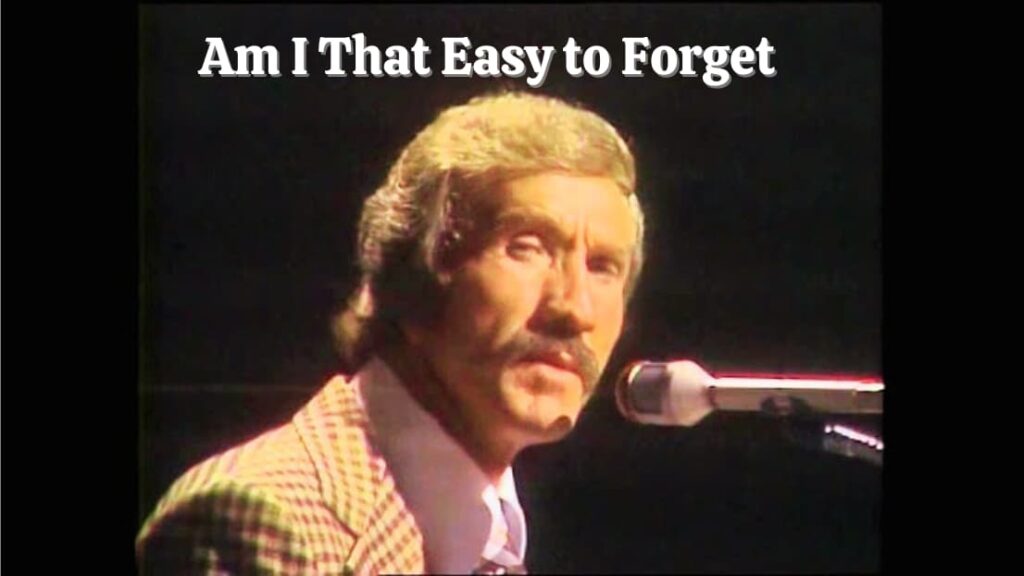
A Haunting Melody of Enduring Love and Lingering Doubt
Ah, the golden age of country music, a time when stories unfolded not just in lyrics but in the very twang of a guitar string and the tremor in a singer’s voice. And few voices resonated with such heartfelt sincerity as that of Marty Robbins. Today, we’re casting our minds back to a quintessential tune from his repertoire, one that continues to pluck at the heartstrings decades later: “Am I That Easy to Forget.”
Released in 1958, this poignant ballad quickly captured the public’s imagination, climbing the charts to a respectable position 1 on the Billboard Hot Country Songs chart and crossing over to reach number 100 on the Billboard Hot 100. Its success wasn’t merely a testament to Marty Robbins‘ star power, but to the universality of its message – a question that, at some point, has undoubtedly echoed in the quiet chambers of many a heart.
The story behind “Am I That Easy to Forget” is, in many ways, as simple and profound as the song itself. While not tied to a grand, dramatic event, its genesis lies in the fertile ground of everyday human emotion. It speaks to the quiet ache of uncertainty that can follow a parting, the yearning for reassurance that one’s presence, one’s love, truly left an indelible mark. This wasn’t a song born of a one-night stand or a fleeting fancy; it was the plaintive cry of someone grappling with the potential erasure of a deeply meaningful connection.
The song’s meaning is laid bare in its very title: a plea, a question, a gentle accusation wrapped in vulnerability. It delves into the lingering doubt that can plague us after a significant relationship has ended, particularly when one party feels they invested more, cared more, or simply remembers more vividly. Is it possible, the singer wonders, that all those shared moments, those whispered promises, those intimate glances, could simply vanish from the other’s memory with such ease? It’s a reflection on the asymmetry of remembrance, on how one person’s profound experience can become another’s forgotten footnote. For many, it evokes the bittersweet pang of first loves lost, friendships faded, or family bonds strained, where the intensity of one’s own recollection stands in stark contrast to the perceived indifference of the other.
“Am I That Easy to Forget” wasn’t just a hit for Marty Robbins; it became a standard, covered by a myriad of artists over the years, each bringing their own interpretation to its timeless plea. Engelbert Humperdinck, Skeeter Davis, and even Jim Reeves have lent their voices to its melancholic beauty, proving its enduring appeal across genres and generations. This speaks volumes about the song’s intrinsic power and its ability to resonate with diverse audiences. It’s a testament to the fact that certain human emotions are universal, transcending musical styles and even the passage of time.
Listening to Marty Robbins‘ original rendition today, one is transported back to a simpler era, a time when country music was less about stadium rock anthems and more about genuine storytelling. His delivery is understated yet profoundly moving, a masterclass in conveying deep emotion without resorting to histrionics. The gentle strumming of the guitar, the subtle swell of the strings – every element contributes to an atmosphere of quiet contemplation and heartfelt yearning. It’s the kind of song you put on when the evening shadows lengthen, and your mind wanders back to days gone by, to faces and places that, no matter how distant, are never truly forgotten. And in that shared experience of remembrance, Marty Robbins’ voice, clear and true, reminds us that some melodies, like some memories, are simply too precious to ever fade away.